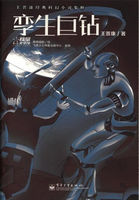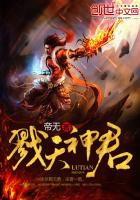The tendency of the human mind--and more especially of the Norse mind --is to supply uncommon and extraordinary reasons for actions and facts that are to be amply accounted for by the working of natural forces. Swanhild would have needed no "familiar" to instruct her in her evil schemes; Eric would have wanted no love-draught to bring about his overthrow. Our common experience of mankind as it is, in opposition to mankind as we fable it to be, is sufficient to teach us that the passion of one and the human weakness of the other would suffice to these ends. The natural magic, the beauty and inherent power of such a woman as Swanhild, are things more forceful than any spell magicians have invented, or any demon they are supposed to have summoned to their aid. But no saga would be complete without the intervention of such extraneous forces: the need of them was always felt, in order to throw up the acts of heroes and heroines, and to invest their persons with an added importance. Even Homer felt this need, and did not scruple to introduce not only second sight, but gods and goddesses, and to bring their supernatural agency to bear directly on the personages of his chant, and that far more freely than any Norse sagaman. A word may be added in explanation of the appearances of "familiars" in the shapes of animals, an instance of which will be found in this story. It was believed in Iceland, as now by the Finns and Eskimo, that the passions and desires of sorcerers took visible form in such creatures as wolves or rats. These were called "sendings," and there are many allusions to them in the Sagas.
Another peculiarity that may be briefly alluded to as eminently characteristic of the Sagas is their fatefulness. As we read we seem to hear the voice of Doom speaking continually. "/Things will happen as they are fated/": that is the keynote of them all. The Norse mind had little belief in free will, less even than we have to-day. Men and women were born with certain characters and tendencies, given to them in order that their lives should run in appointed channels, and their acts bring about an appointed end. They do not these things of their own desire, though their desires prompt them to the deeds: they do them because they must. The Norns, as they name Fate, have mapped out their path long and long ago; their feet are set therein, and they must tread it to the end. Such was the conclusion of our Scandinavian ancestors--a belief forced upon them by their intense realisation of the futility of human hopes and schemings, of the terror and the tragedy of life, the vanity of its desires, and the untravelled gloom or sleep, dreamless or dreamfull, which lies beyond its end.
Though the Sagas are entrancing, both as examples of literature of which there is but little in the world and because of their living interest, they are scarcely known to the English-speaking public. This is easy to account for: it is hard to persuade the nineteenth century world to interest itself in people who lived and events that happened a thousand years ago. Moreover, the Sagas are undoubtedly difficult reading. The archaic nature of the work, even in a translation; the multitude of its actors; the Norse sagaman's habit of interweaving endless side-plots, and the persistence with which he introduces the genealogy and adventures of the ancestors of every unimportant character, are none of them to the taste of the modern reader.
"Eric Brighteyes" therefore, is clipped of these peculiarities, and, to some extent, is cast in the form of the romance of our own day, archaisms being avoided as much as possible. The author will be gratified should he succeed in exciting interest in the troubled lives of our Norse forefathers, and still more so if his difficult experiment brings readers to the Sagas--to the prose epics of our own race. Too ample, too prolix, too crowded with detail, they cannot indeed vie in art with the epics of Greece; but in their pictures of life, simple and heroic, they fall beneath no literature in the world, save the Iliad and the Odyssey alone.















